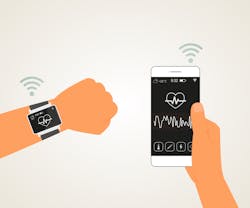We continue our discussion about medical developments, in the area of tests and technology. For advances in pharmaceuticals and diagnostics, click here.
Testing for and preventing cancer
While ovarian cancer accounts for only about 3% of cancers in women, it is the fifth leading cause of cancer-related death among women, and is the deadliest of gynecologic cancers. (1) There are early symptoms of ovarian cancer, but has been known as the “silent” killer because many patients do not recognize or ignore the symptoms, and survival in late stage diagnosis is grim. Early-stage ovarian cancer may exhibit the following symptoms: bloating; pelvic or abdominal pain; difficulty eating or feeling full quickly; and urinary symptoms (urgency or frequency). (2) There is no screening test for ovarian cancer, but those at high risk can have a blood test, a transvaginal ultrasound, and a pelvic examination. The CA 125 blood test is not very accurate, but it is helpful in combination with these above mentioned tests. The OVA1 has also been approved by the Food and Drug Administration (FDA) for risk stratification. (2, 3)
READ MORE | The Role of Diet in Oral Disease Prevention
The good news is that investigators have developed a new screening technique that can detect ovarian cancer in twice as many women as traditional strategies. These findings of the UK Collaborative Trial of Ovarian Cancer Screening (UKCTOCS), the largest ovarian cancer screening trial worldwide, could mean detecting significantly more cases of ovarian cancer in early stages and save more lives. (4) The scientists used a novel algorithm to assess the levels of the tumor marker or biomarker CA125, which is found in higher concentration in tumor cells than in other cells of the body. (4)
Speaking of cancer, there is a new CDC report on the topic. (5) The chances of being diagnosed with cancer were higher among men than women, highest among black people, and varied by state. The most common kinds of cancer are prostate, female breast, lung, and colorectal. (5) Prevention is key. Quit smoking and avoid secondhand smoke; exercise and sustain a healthy weight; and prevent infections during chemotherapy, like dental infections. (5)
People who eat a healthy diet containing a majority of fruits and vegetables, nuts, fish, moderate alcohol use, and not much red meat may be less likely to experience declines in their memory and thinking skills, according to a new study. (6) The researchers established that higher diet quality was associated with a reduced risk of cognitive decline. Improved diet quality represents an important potential target for reducing the global burden of cognitive decline. Healthy eating may suggest a healthier lifestyle. For more on how to keep your brain healthy, visit the Sutter Health website.
Personal health-care technology
Now on to technology, as promised. While a larger iPhone or an Apple Watch is exciting, it is more significant that Apple is entering the healthcare industry. With HealthKit, it is building an iTuneslike platform for health, and the Apple Watch as the first medical device. Google, IBM and hundreds of startups are already in this sector. The devices use MEMS sensors, and enable the measurement of things such as heart rate, temperature, blood pressure and activity levels, and can feed data into cloudbased platforms such as HealthKit. They will be packaged in watches, BandAids, clothing and contact lenses. Google scientists have created contact lens to measure blood sugar levels in tears! (7) Novartis announced that its eye care division Alcon has created an agreement with a division of Google Inc. to in-license its “smart lens” technology for all ocular medical uses. (7)
Nanobiosym Diagnostics has developed a device about the size of an iPad that will be able to detect if a person has malaria, tuberculosis, HIV, or cancer. Add a drop of blood to the device, and it looks for the genetic markers of a variety of conditions and produces a verdict immediately. The company's Gene-RADAR system is a little medical laboratory on a microchip, made possible by advances in nanotechnology.
So what’s next? The Fountain of Youth? Don’t laugh too loud. A company, Human Longevity, will develop cell therapies using genomics to extend the healthy lifespan of humans. (8) Google made a major investment in a company called Calico to research diseases that afflict the elderly, such as neurodegeneration and cancer. It wants to understand ageing and, ultimately, extend life. (9) A lot to think about!
“It’s not just a long life we’re striving for, but one which is worth living.” (9)
References
1. Statistics. Ovarian Cancer National Alliance. http://www.ovariancancer.org/about/statistics/. Accessed June 2, 2015.
2. Symptoms and detection of ovarian cancer. Ovarian Cancer National Alliance. http://www.ovariancancer.org/about/symptoms-of-ovarian-cancer-detection/. Accessed June 2, 2015.
3. Home page. Ova 1. http://www.ova-1.com/. Accessed June 2, 2015.
4. Menon U, Ryan A, Kalsi J, et al. Risk algorithm using serial biomarker measurements doubles the number of screen-detected cancers compared with a single-threshold rule in the United Kingdom Collaborative Trial of Ovarian Cancer Screening [published online ahead of print May 11, 2015]. J Clin Oncol. 2015. http://jco.ascopubs.org/cgi/doi/10.1200/JCO.2014.59.4945.
5. Henley SJ, Singh SD, King J, et al. Invasive cancer incidence and survival—United States 2011. MMWR Morb Mortal Wkly Rep. 2015;64:237-42. http://www.cdc.gov/mmwr/preview/mmwrhtml/mm6409a1.htm?s_cid=govD_CancerReport_01.
6. Smyth A, Dehghan M, O'Donnell M, et al. Healthy eating and reduced risk of cognitive decline. A cohort from 40 countries. Neurology, Published online before print May 6, 2015.
7. Barclay R. Google scientists create contact lens to measure blood sugar levels in tears. http://www.healthline.com/health-news/diabetes-google-develops-glucose-monitoring-contact-lens-012314. Published January 23, 2014. Accessed June 2, 2015.
8. Human Longevity Inc. (HLI) launched to promote healthy aging using advances in genomics and stem cell therapies. http://www.humanlongevity.com/human-longevity-inc-hli-launched-to-promote-healthy-aging-using-advances-in-genomics-and-stem-cell-therapies/. Published March 4, 2014. Accessed June 2, 2015.9. Google announces Calico, a new company based on health and well-being. News from Google. http://googlepress.blogspot.com/2013/09/calico-announcement.html. Published September 18, 2013. Accessed June 2, 2015.









